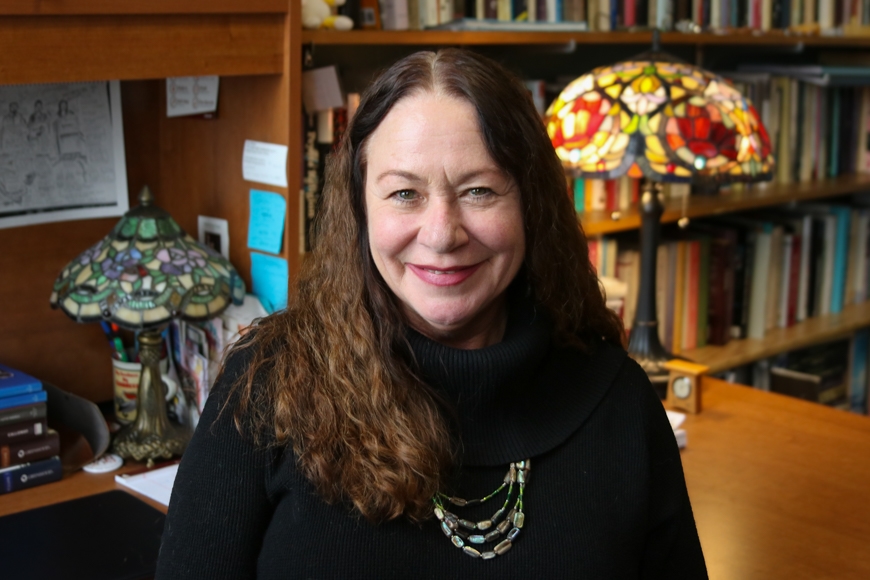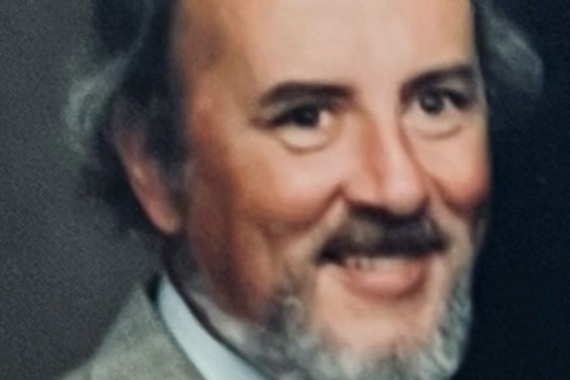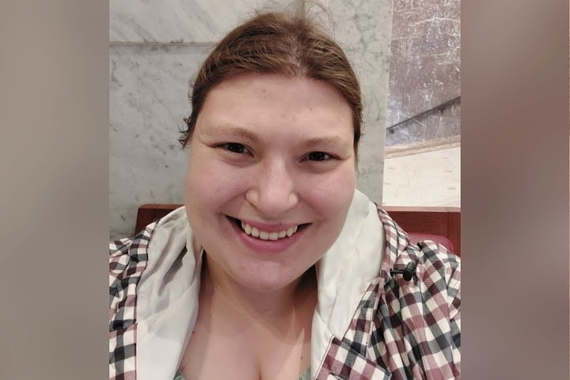2023 Regents Professor Jean O’Brien: Teaching & Expanding Indigenous History
Professor Jean O’Brien of the Department of History has been named a Regents Professor, the highest honor the University of Minnesota bestows on its faculty. A citizen of the White Earth Ojibwe Nation, she has been involved with American Indian studies since it was beginning to take off as a discipline—and has done much to advance the field as a researcher, professor, and mentor.
Fortunate Beginnings
O’Brien grew up in southern Minnesota, though she often visited the White Earth Reservation in northwestern Minnesota to stay with her Ojibwe grandmother. After her grandfather passed, her grandmother moved from the reservation to live permanently with O’Brien’s family, becoming a key figure in O’Brien’s life. She would often observe her grandmother writing, recording her family history, along with the history of White Earth and the Ojibwe people. That example sparked O’Brien’s interest in history and led her to research Indigenous histories during her higher education.
O’Brien also grew up in a time of Indigenous activism, when scholars and activists were reclaiming Indigenous history and culture and furthering the establishment of Native studies in schools. She pursued American Indian studies and Ojibwe language at Bemidji State University and furthered her research in graduate school at the University of Chicago. She wrote her dissertation on 17th- and 18th-century American Indian history in New England, which later turned into her first book, Dispossession by Degrees.
"I got interested in that because of what the literature said at the time, which was that American Indians there had become extinct," O'Brien explains, "which didn't make any sense to me. I ended up doing research showing how that narrative was false."
O’Brien was on the final stretch of her dissertation when she got an unexpected call from history professor Russell Menard informing her of a teaching position that had recently opened up at the University of Minnesota and encouraging her to apply. O’Brien was thrilled at the opportunity to teach in her home state. The U also had a large presence in American Indian studies, having established the country’s first full department in 1969.
“I was very lucky to be hired [here]. This is home for me, and I found a wonderful department,” O’Brien reflects. “It all felt very fortuitous for me, just following what I cared about, and finding paths where I was encouraged.”
A Career Full of Change
O’Brien teaches both US and American Indian history, and has earned acclaim and awards for her work within and beyond the classroom. She has made many impressive contributions within academics, with 16 published works to her name, along with 19 professional awards, including two McKnights (1992, 2015), Best Subsequent Book in Native American and Indigenous Studies (2010), and the Lifetime Achievement Award in American Indian history from the Western History Association (2014). In 2020, she was named a Northrop Professor and in 2022, she was elected to the American Academy of Arts & Sciences.
Along with her research, she has made long-lasting impacts on students. O’Brien has mentored hundreds of students, both at the undergraduate and graduate level, as well as 31 PhDs with more than a dozen still in progress.
“I love teaching my students. It's a real pleasure for me to work with them,” she says.
O’Brien’s academic impact extends beyond her own teaching and research—she is also a leader in creating a space for the Department of American Indian Studies (AIS) to engage with scholars across many areas and disciplines. In 2005, she and five colleagues from other institutions co-founded the Native American and Indigenous Studies Association (NAISA), which became one of the first professional associations for American Indian studies. She also served as the president and the inaugural co-editor of NAISA’s journal for six years.
NAISA has connected many Indigenous scholars from all around the globe. The association’s first conference was held in 2007 with 250 scholars across 11 nations, and has since expanded to over 2,000 members with annual conferences hosted across the world, including Canada, Australia, New Zealand, and—this coming June—Norway.
“It's very exciting, because it's a young association,” O’Brien comments. “Our field or discipline is pretty young, so it includes lots and lots of graduate students, of which we have many here at the University of Minnesota.”
Recognition as a Regents Professor
In 2023, O’Brien was recognized with another honor when she was named a Regents Professor.
“As somebody who is Indigenous and working in Indigenous studies, we’re not always considered the most central thing that a university does,” she says. “It’s a tremendous honor to be recognized as a Regents Professor for myself and for a field that is often marginalized in the academy.”
O’Brien has always had a bright outlook towards the future. She was inspired early on to strive for more within Indigenous history and studies, and has worked tirelessly to push the discipline forward. She “[doesn’t] remember a moment when [she] wasn’t energized by doing that work.”
“I feel very honored that my colleagues nominated me,” O’Brien says. “I’ve tried to do good work in my teaching and research, so to have it recognized is just incredible.”
O’Brien has much planned for the future. She is currently researching for her next book, which dives into her family history as she studies the writings in her grandmother’s journals. She plans to work on the project slowly, taking time to explore archives that she has never been into before. The expanding realm of Indigenous studies she had a part in cultivating has led to a surge of new research within the field, forming a more complete picture for future works like hers.
“There’s dozens and dozens of people out there teaching across the United States and Canada and elsewhere, working in all different kinds of fields with tribes doing all kinds of great work based on the incredible graduate training that they can get here. That's something that I've loved from the beginning of my career here, and that's definitely something that I'll continue to do in the future,” O’Brien says. Her commitment to research, teaching, and mentorship has made a lasting impact on the studies of Indigenous history in the present, past, and future.
This story was written by Lily Zenner, an undergraduate student in CLA.



